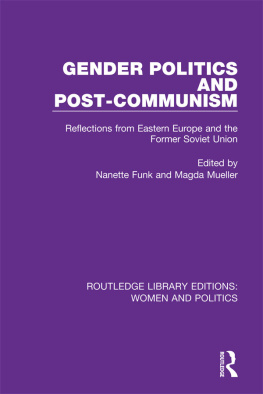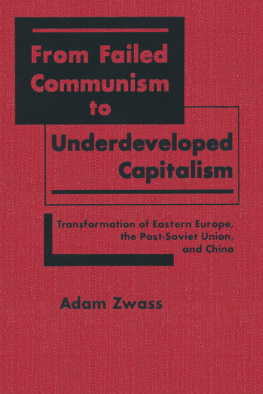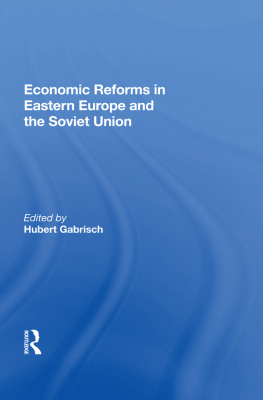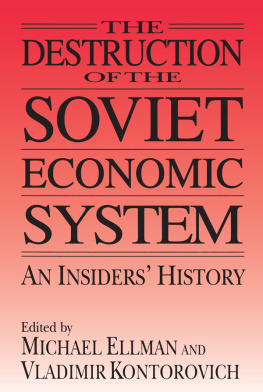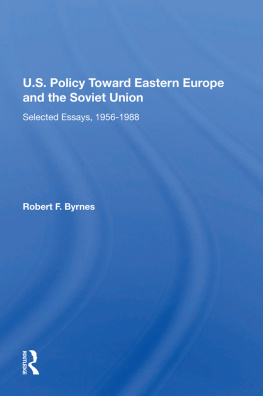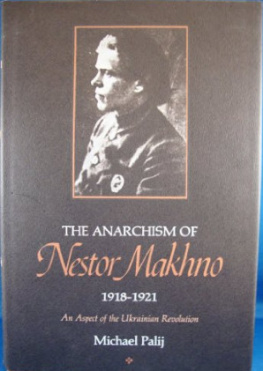Foreign Trade in Eastern Europe and the Soviet Union
Published in cooperation with
The Vienna Institute for Comparative Economic Studies
Foreign Trade in Eastern Europe and the Soviet Union
The Vienna Institute for Comparative Economic Studies Yearbook II
Edited by
Michael Friedlnder
First Published 1990 by Westview Press, Inc.
Published 2018 by Routledge
52 Vanderbilt Avenue, New York, NY 10017
2 Park Square, Milton Park, Abingdon, Oxon OX14 4RN
Routledge is an imprint of the Taylor & Francis Group, an informa business
Copyright 1990 Taylor & Francis
All rights reserved. No part of this book may be reprinted or reproduced or utilised in any form or by any electronic, mechanical, or other means, now known or hereafter invented, including photocopying and recording, or in any information storage or retrieval system, without permission in writing from the publishers.
Notice:
Product or corporate names may be trademarks or registered trademarks, and are used only for identification and explanation without intent to infringe.
Library of Congress Cataloging-in-Publication Data
Foreign trade in Eastern Europe and the Soviet Union/edited by
Michael Friedlnder.
p. cm.(Westview special studies in international
economics) (The Vienna Institute for Comparative Economic Studies
Yearbook; 2)
Includes bibliographical references.
ISBN 0-8133-7913-X
1. Europe, EasternCommercial policy. 2. Soviet Union
Commercial Policy. 3. Technology transferEurope, Eastern.
4. East-West trade (1945-). I. Friedlnder, Michael. II. Series
III. Series: The Vienna Institute for Comparative Economic Studies
Yearbook; 2.
HF1532.7.F67 1990
382'.0947dc20 89-48097
CIP
r89
ISBN 13: 978-0-367-01462-9 (hbk)
Contents
Michael Friedlander
Peter Havlik
Marvin Jackson
Zdenek Lukas
Michael Friedlander
Friedrich Levcik
Sandor Richter
Margit Racz - Sandor Richter
Gabor Oblath - Peter Pete
Hubert Gabrisch
Peter Havlik
Werner Brandstetter
Stephan Barisitz - Gerhard Fink
Stephan Barisitz
Gerhard Fink - Kurt Mauler
Hubert Gabrisch
Witold Trzeciakowski
Hermine Vidovic
This second yearbook of The Vienna Institute for Comparative Economic Studies published under the imprint of Westview Press contains, in book form, a selection of analyses and studies, carried out, over the last year and a half, by the Institute's researchers and associates. Dealing with the economic situation in the countries of Eastern Europe and the Soviet Union, it is published at a moment when the staggering developments now taking place in the realm of Eastern Europe and the Soviet Union lend it an actuality that can hardly be exaggerated.
I would like to express my special thanks to Michael Friedlander for the compilation and revision of the present issue of the yearbook.
Gerhard Fink
The current changes in Eastern Europe and the Soviet Union made the compilation of this second yearbook of The Vienna Institute an especially challenging task. Hard choices had to be made to ensure both actuality and a broad range of topics.
My special thanks go to the authors, who are presented at the end of this volume. The texts were prepared for this book publication by Fred Prager and Eva Strobl. Gabriele Stanek processed the texts on the computer with impressive speed. Carolyn Richards of Westview Press provided invaluable help, ensuring smooth and prompt cooperation across the Atlantic.
To all of them I wish to express my gratitude. The shortcomings and remaining errors remain my responsibility.
Michael Friedlnder
Michael Friedlnder
A country's foreign trade mechanisms, and its foreign trade performance in general are usually good indicators of its economic system, and of its economic standing. By taking a look at various aspects of foreign trade in Eastern Europe and the Soviet Union, this volume gives insights into the ongoing transition process in these countries from centrally planned to market-oriented systems.
Reforms, Trade and Trade Policy
Traditional, that is, unreformed centrally planned economies are closed economies, where foreign trade is regarded as a mere supplement to the domestic economy. Planners use imports to close gaps in planned domestic supply, and set aside a part of planned output for export purposes in order to counterbalance the planned imports. To this end the center subjects both imports and exports to authorization by the instrument of licensing. Relative foreign trade prices are changed, in order to correspond to relative prices on the domestic market, by application of multiple exchange rates or so-called price multipliers. In order better to control foreign trade activities, producers of export and users of import goods are not allowed to enter into direct contact with foreign buyers and sellers, but must instead use, as intermediaries, the foreign trade organizations, who mostly have a monopoly in their respective fields.
The foreign trade system in traditional centrally planned economies has a number of serious disadvantages, which is one of the reasons for the disappointing performance of these economies. The main disadvantages are the separation of domestic economic agents from the world market through export and import licences, multiple exchange rates and the cumbersome intervention of the foreign trade organizations -- i.e. the very centerpieces of the foreign trade system.
In the upshot, centrally planned economies experimenting with reforms of their foreign trade mechanisms are bound to face the recognition that only fundamental changes linking the domestic economy with the outside world have a chance of producing tangible results. Partial reforms are bound to be disappointing, and this is currently experienced by the Soviet Union, who has enlarged the number of organizations authorized to engage in foreign trade, but has maintained a licensing system and a distorted domestic price structure (see the first contribution by Peter Havlik). Another example for partial, and sometimes contradictory, foreign trade reforms is found in Bulgaria (see contribution by Marvin Jackson). In Czechoslovakia, too, partial reforms of the foreign trade mechanism are attempted (see Zdenek Lukas' paper). In Hungary, decentralization of foreign trading rights have gone furthest, and from 1989 onwards some imports in convertible currency trade do not require licensing (see contribution by Michael Friedlnder).
What consequences do the market-oriented reforms undertaken in most of the East European countries hold for the CMEA, the Eastern Bloc's organization for economic cooperation? In the short run, as Friedrich Levcik argues in his contribution, the reforms will probably increase the individual East European countries' economic ties with the West. However, once Eastern Europe's economic systems will have been transformed into market-oriented economies, this could create a new impetus for economic integration between these economies.


